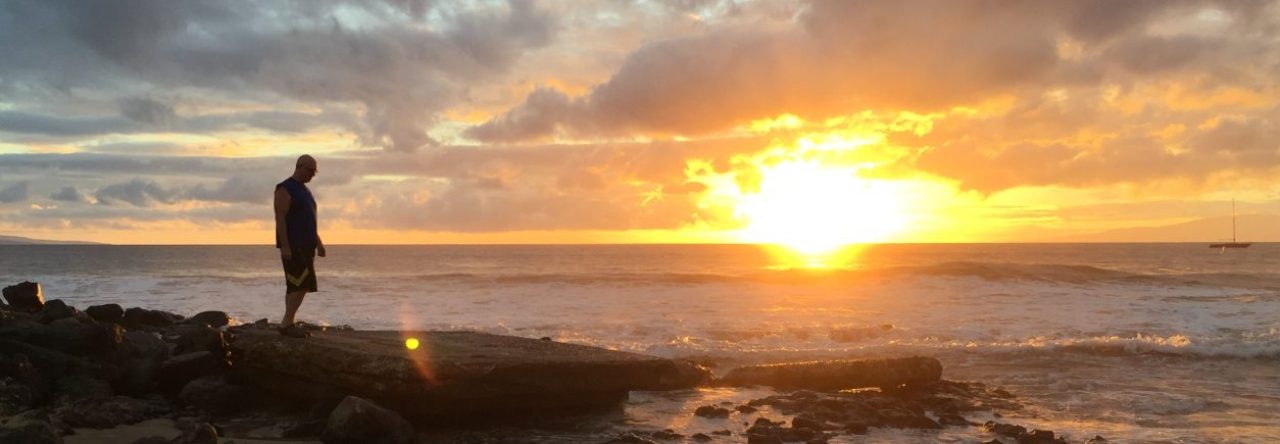“I’m a success today because I
had a friend who believed in me
and I didn’t have the heart
to let him down.”
— Abraham Lincoln
There are two teachers I remember who made a difference in my life early on. My parents were not able to provide guidance, leadership or direction. When I was in German elementary school in my little town, when I was 10 years old in 5th grade, there was one classroom for the first eight grades. The first row of six kids was the first grade. The second row was the second grade, and so on. In the morning, Herr Sicheneder started in the front and gave the “little ones” assignments and then he worked his way back. I was in 5th grade, and he usually combined grades 5 through 8 and taught them together, at least in subjects where it made sense, like history or geography. After 8th grade, you were done with school and everyone went to a trade school and start a three-year apprenticeship for a trade. I was a shy little boy who had no idea where he was going.
Herr Sicheneder pulled me aside one day and told me that I should apply for prep school. This was in 1966. In the German school system, in those years, maybe 5 to 10 percent of all kids got to go to Oberschule (high school), in German called Gymnasium, which was the only pathway to higher education and university. To get in, you had to pass an entrance exam. I had no idea what was involved, how you applied, and what the exam was like. Herr Sicheneder kept me in school after all the other kids went home for many months and tutored me. I still remember many of the drills today, almost 60 years later. Wegen, während, statt, kraft, oberhalb, unterhalb, diesseits, jehnseits are all German prepositions followed by the genitive case. Who knows stuff like that? I do, because Herr Sicheneder made sure I had them all memorized. He drilled me in German, mathematics, essay writing and whatever else was in the exam. I have no memory of taking it, but I passed, and in the fall of 1967 I started taking the bus to the city every day and went to Oberschule. Herr Sicheneder was the single most important influence on the direction of my life by a long shot. He put me on a course that resulted in what I am today, and without him, my life would have been very, very different.
Herr Sicheneder was in his late fifties then. As an adult, I never got the chance to go back and thank him for what he did for me. He passed away many decades ago.
I met the second teacher with similar impact on my life on my first day in Gymnasium at the end of August 1967. My professor of Latin and German, and my homeroom teacher, was a young man right out of university perhaps in his first year of teaching, by the name of Wolfgang Illauer. I had Professor Illauer in Latin and German for three years. Being a bit of a German literature snob, he taught us discipline in writing, grammar and spelling and made sure we appreciated German literature. Professor Illauer taught me how to write, imparted critical thinking, instilled values for beauty, art, literature and general culture. Being a professor of the classic languages of Greek and Latin, he had a strong classical background which rubbed off on me. Professor Illauer was my coach and teacher between ages 11 and 13, and he shaped my intellectual and cultural trajectory unlike any other teacher I remember. As I grew into the upper grades, I never saw him again. Eventually I went on a scholarship foreign exchange program to the United States and got my entire college education here.
A number of years ago I googled Professor Illauer and being the academic he was, he had given some lectures as a guest professor in his retirement. I found his email address. We connected and established correspondence, mostly sharing our thoughts on literature, poetry, writing, education and all the things that academics of the classics are interested in.
Finally, a couple of weeks ago, we met in person for the first time after more than 50 years. I spent a night at the Hilton at the Munich Airport, and he drove in from Augsburg to have dinner with me. When I was a child, he was a god. Today, we’re almost equals, two old men interested in a common quest for language and education. We’re on a first name basis and use the German familiar form of address. We talked about Tolstoy. Wolfgang recently read War and Peace in the original Russian language. Go figure. He recommended that I read Somerset Maugham’s short stories, which he reads in English.
I spent a couple of hours over dinner with an “old friend” and one of the two teachers with immeasurable impact on my life.
Wolfgang reads this blog. This is my thank you.
Like this:
Like Loading...
















